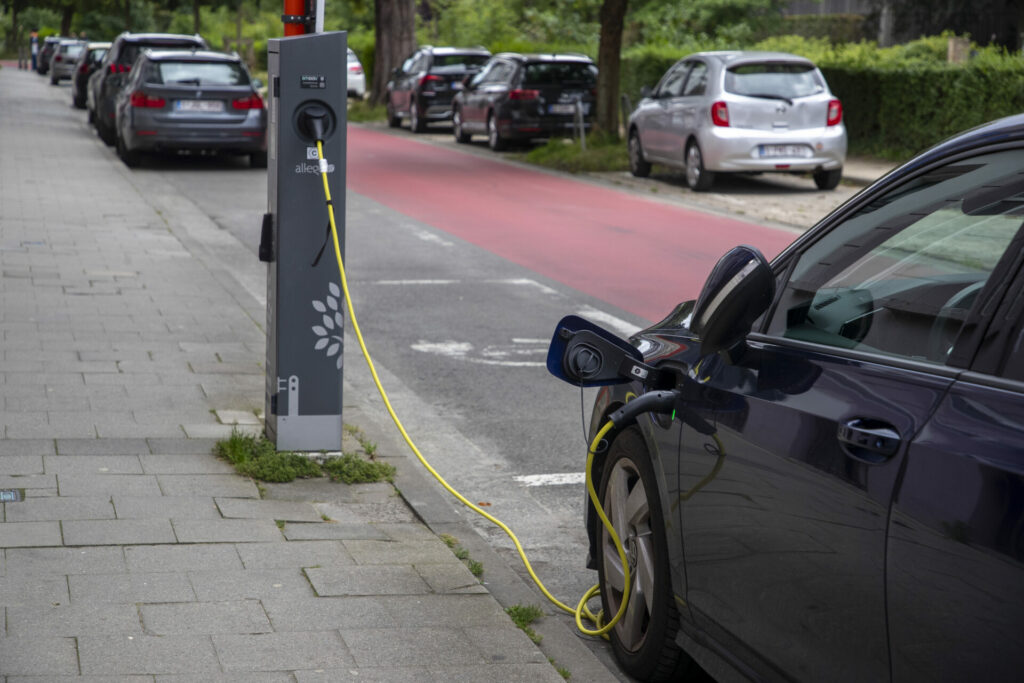The number of electric vehicle (EV) charging stations in supermarket car parks is set to triple between now and the end of 2024, according to figures from Le Soir.
Lidl, Aldi, Delhaize and Colruyt all plan to increase the number of charging stations, bringing the total to 2,500 by the end of 2024. The impetus for more charging stations attests to the increasing number of EV users as well as major chains' desire to showcase their environmental credentials.
These plans are in tandem with official government projects to make EVs more accessible to the wider public. In October, the Brussels-Capital Region introduced 'Electrify.Brussels': an initiative which aims to install 22,000 public charging stations and ensure that every resident is within 150 metres of a charging point by next January.
For the people?
While the government initiative aims to 'democratise' EV ownership, supermarket chains are not hiding the commercial motivation behind the provision of charging infrastructure. "The ultimate objective is to offer a supplementary service to our customers," an Aldi spokesperson told Le Soir. "The demand for electric vehicle charging points is on the rise."
Lidl, once a pioneer of free charging stations, recently announced a switchover to a paid model. This is now the case for all supermarkets offering charging points, with preferential rates available to customers. Lidl charges €0.38/kWh, while Delhaize charges €0.65/kWh. A rapid charge at Aldi costs €0.70/kWH and a slow charge costs €0.55/kWh.
Slow start
The EU's engine ban, which will forbid new CO2-emitting vehicles from 2035, explains Belgium's drive toward electric vehicles. Despite efforts to create the charging infrastructure necessary to cater for burgeoning numbers of EVs, key industry players warn that it will be hard to keep up.
"It is estimated that there will be two million electric vehicles in Belgium by 2030 (i.e. one electrified car in three). So 200,000 publicly accessible charging points will be needed throughout the country, including 70,000 in Wallonia," EV Belgium coordinator Romain Denayer explained. He therefore stressed the need for their development to be accelerated.
As it stands, there are around 28,000 charging points in Flanders, 5,000 in Wallonia and 3,000 in Brussels.

